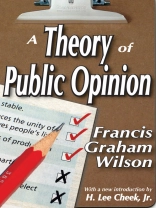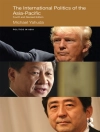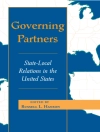This book traces the emergence of the ideas and institutions that evolved to give people mastery over their own destiny through the force of public opinion. The Greek belief in citizen participation is shown as the ground upon which the idea of public opinion began and grew. For Wilson, public opinion is an ‘orderly force, ‘ contributing to social and political life.
Wilson appraises the influence of modern psychology and the slow appearance of methodologies that would enable people not only to measure the opinions of others, but to mold them as well. He examines the relation of the theory of public opinion to the intellectuals, the middle class, and the various revolutionary and proletarian movements of the modern era. The circumstances in which the individual may refuse to follow the opinions of the experts are succinctly and movingly analyzed.
This book is a historical and philosophical evaluation of a concept that has played a decisive part in history, and whose overwhelming force is underestimated. The author’s insight brings an understanding that is invaluable at a time when public opinion, the force developed to enable the ruled to restrain their rulers, has become controllable. Attempts to manipulate it are made by those who would impose their will upon their fellow men.
เกี่ยวกับผู้แต่ง
H. Lee Cheek, Jr., is professor of political science and religion at the University of North Georgia, and a senior fellow of the Alexander Hamilton Institute. His previous books include Political Philosophy and Cultural Renewal, Order and Legitimacy, and Calhoun and Popular Rule, among other works.












